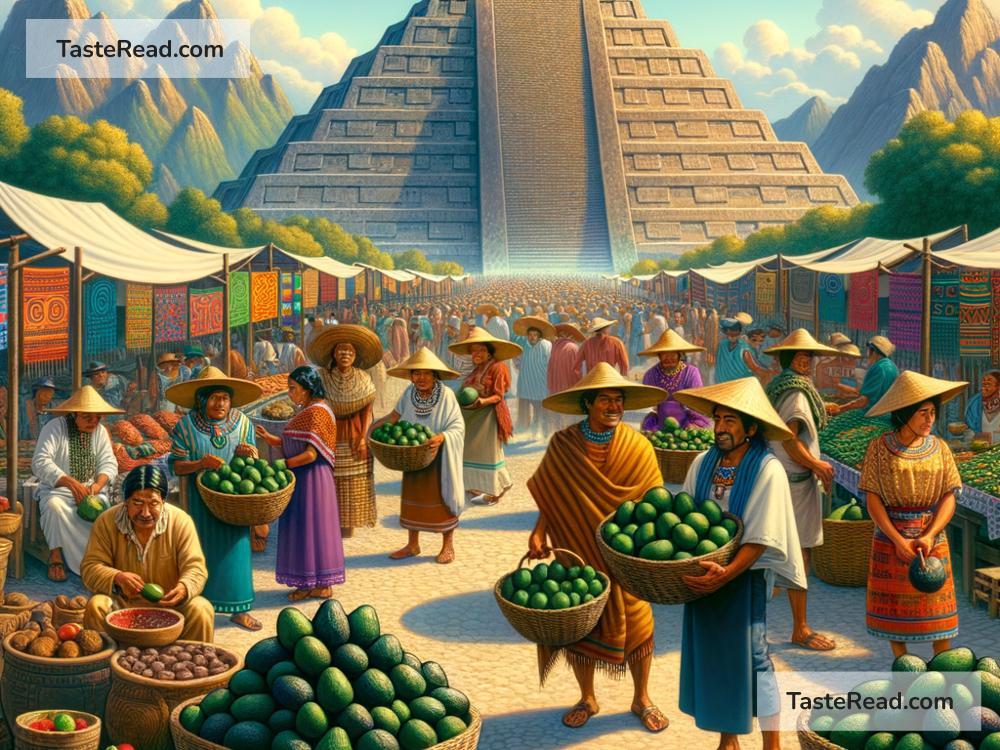The Hidden Story of Avocados in Aztec Culture
If you’ve ever enjoyed avocado toast or savored creamy guacamole, you might know that avocados come from Mexico, but have you ever wondered about the hidden history of this delicious fruit? Avocados weren’t just food to the Aztecs—they were a symbol of love, power, and life. Their story goes back thousands of years, and there’s more to them than meets the eye.
The Origins of Avocados
Before avocados became the global superfood we love today, they were known as ahuacatl (pronounced ah-wah-kah-tl) in the Nahuatl language, spoken by the Aztecs and other Indigenous peoples of Mexico. The Aztecs believed avocados had special powers because of their creamy texture, rich flavor, and heart-like shape. The word ahuacatl actually means “testicle” in Nahuatl—a name inspired by the fruit’s appearance when it hangs in pairs on a tree. This might make you giggle, but for the Aztecs, it represented fertility and love.
The avocado tree was seen as sacred. Its ability to produce such nutrient-rich fruit made it a symbol of abundance, growth, and strength. The Aztecs cultivated and cherished avocados long before modern agriculture existed. The fruit played an important role in their diet, medicine, and mythology.
Avocados as Food and Medicine
The Aztecs were skilled farmers who grew a variety of foods like corn, beans, chili peppers, and squash. They saw avocados as a source of essential nutrients. Unlike many fruits, avocados are rich in healthy fats, which gave people energy and strength. The Aztecs ate avocados to stay strong during hard work or battles, and they believed the fruit helped keep their hearts and bodies healthy.
Avocados were not only food but also medicine. The Aztecs used avocado oil to heal wounds and moisturize skin. They believed the fruit’s rich, buttery texture could soothe pain or inflammation. Its skin and pit were also used in remedies, proving that no part of the avocado went to waste.
Avocados in Love and Mythology
What’s particularly fascinating is how avocados were linked to love in Aztec culture. Because of the fruit’s symbolic connection to fertility and life, it was believed to have aphrodisiac qualities. Avocado trees only produce fruit when a male and female tree grow near each other, and this unique feature further strengthened the fruit’s association with romance and partnership.
Legend has it that the Aztec goddess Xochitl, known as the goddess of flowers, agriculture, and love, blessed the avocado tree so that people could connect with nature and love. Avocados were often used in rituals and ceremonies to honor love, fertility, and marriage. Young couples might share avocados as a symbolic way to express their feelings for each other.
Avocados as a Status Symbol
Not everyone could eat avocados regularly in Aztec society. They were a prized fruit and often reserved for the elite—the warriors, priests, and rulers. Common people grew and traded avocados, but the freshest ones were reserved for sacred ceremonies or gifts to royalty. Being able to eat avocados was seen as a sign of status and privilege. It’s interesting to think that long before avocados were “Instagrammable,” they were already considered luxurious.
The Aztecs also traded avocados with neighboring civilizations. The fruit’s value went beyond its taste—it was a symbol of wealth, vitality, and connection. By trading avocados, the Aztecs built relationships with other groups and spread their love for the fruit far and wide.
The Journey of Avocados to the Modern World
After the Spanish conquered the Aztecs in the early 1500s, they introduced avocados to Europe. The fruit’s unique taste and texture fascinated people, but it took centuries for avocados to become popular outside Mexico. In the 20th century, advancements in farming and transportation helped avocados reach markets around the world. Today, they are grown in countries like the United States, Peru, Chile, and South Africa—but their roots remain firmly in Aztec culture.
Modern science has confirmed what the Aztecs already knew: avocados are a nutritional powerhouse. Packed with vitamins, healthy fats, and antioxidants, they truly are a gift from nature. Yet, few people know about their rich history and cultural significance.
Honoring the Legacy of Avocados
Every time we eat an avocado, we are connected to the incredible legacy of the Aztecs. These ancient people were not only skilled farmers but also storytellers who wove meaning into everything they grew. Avocados remind us that food is more than sustenance—it’s a connection to history, culture, and creativity.
Next time you slice into a ripe avocado, pause for a moment to appreciate its story. Think about the Aztec farmers who carefully tended the trees, the rituals that honored love and life, and the trade routes that spread avocados to new lands. From ancient Nahuatl-speaking communities to modern kitchens, avocados have always been more than just a fruit—they are a symbol of life’s richness.
So enjoy your guacamole with pride, knowing that you’re tasting a fruit that carried love, power, and history for thousands of years. Avocados may be popular today, but they’ll always have their roots in the heart of Aztec culture.


